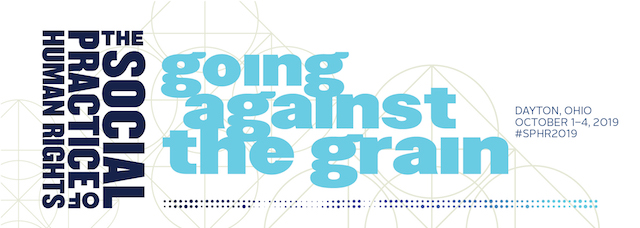Paper/Proposal Title
The Rise of ‘Right-Wing’ Human Rights Rhetoric: A Palestinian & Israeli Case Study
Location
Poster Session
Start Date
10-3-2019 8:00 AM
End Date
10-3-2019 9:00 AM
Keywords
human-rights rhetoric, non-governmental organizations, Israeli high court, Palestinian rights, home demolitions
Abstract
Human rights are historically understood as ‘liberal’ rhetoric, yet the following study will present an unprecedented turn by an Israeli ‘right-wing’ organization to human rights language and methodologies as a means to advance their goals. For context, the study will review how ‘liberal’ organizations in the region have employed rights-based frameworks, dating back to the rise of the first intifada in the late 1980’s. Specifically, the study focuses on three organizations that utilize the Israeli court system for their work: ACRI (Association for Civil Rights in Israel), Adalah (The Legal Centre for Arab Minority Rights in Israel), and HaMoked. Human rights methodology and terminology is studied, including how the organizations employ terms such as “human rights,” “basic rights,” and “international law” within their reporting and court petitions.
Then, a comparative analysis is conducted focusing on the Israeli organization Regavim, as a case study. Regavim utilizes liberal human rights methods, i.e. “field observers”, think tanks, and advocacy campaigns to further their pro Israeli-settlement agenda, a process deemed illegal under international law. They file “parallel petitions” to those of ‘left-wing’ organizations as a means to halt any Arab development in Israeli occupied territories (Golan Heights, Israel within 1948 borders, East Jerusalem, and the West Bank). These petitions are studied alongside their ‘liberal’ counterparts. Applying this analysis to a broader context, the success rates of Regavim’s work to acquire or expedite demolition or stop work orders is analyzed within their broader impact on Israeli settlement expansion, and the demolition of Palestinian/Druze communities.
As references to ‘right-wing’ and ‘left-wing’ are used increasingly as polarizing terminology, this study offers insight into how human rights methodologies that have been historically considered ‘liberal’ have begun to be used my ‘conservative’ organizations to advance their own goals.
Author/Speaker Biographical Statement(s)
Leah Wilson is a senior undergraduate student at the University of Winnipeg, majoring in Human Rights and International Development Studies. She is a Dean’s Honour List with Highest Distinction student and has held multiple roles on the Menno Simons College Students’ Association. She recently completed a three-month internship at an organization working for peace and justice based in Bethlehem, the West Bank. Her areas of interest include experiential learning, transitional justice, and work for peace and justice within Palestine and Israel.
Included in
International Law Commons, Race, Ethnicity and Post-Colonial Studies Commons, Rhetoric Commons
The Rise of ‘Right-Wing’ Human Rights Rhetoric: A Palestinian & Israeli Case Study
Poster Session
Human rights are historically understood as ‘liberal’ rhetoric, yet the following study will present an unprecedented turn by an Israeli ‘right-wing’ organization to human rights language and methodologies as a means to advance their goals. For context, the study will review how ‘liberal’ organizations in the region have employed rights-based frameworks, dating back to the rise of the first intifada in the late 1980’s. Specifically, the study focuses on three organizations that utilize the Israeli court system for their work: ACRI (Association for Civil Rights in Israel), Adalah (The Legal Centre for Arab Minority Rights in Israel), and HaMoked. Human rights methodology and terminology is studied, including how the organizations employ terms such as “human rights,” “basic rights,” and “international law” within their reporting and court petitions.
Then, a comparative analysis is conducted focusing on the Israeli organization Regavim, as a case study. Regavim utilizes liberal human rights methods, i.e. “field observers”, think tanks, and advocacy campaigns to further their pro Israeli-settlement agenda, a process deemed illegal under international law. They file “parallel petitions” to those of ‘left-wing’ organizations as a means to halt any Arab development in Israeli occupied territories (Golan Heights, Israel within 1948 borders, East Jerusalem, and the West Bank). These petitions are studied alongside their ‘liberal’ counterparts. Applying this analysis to a broader context, the success rates of Regavim’s work to acquire or expedite demolition or stop work orders is analyzed within their broader impact on Israeli settlement expansion, and the demolition of Palestinian/Druze communities.
As references to ‘right-wing’ and ‘left-wing’ are used increasingly as polarizing terminology, this study offers insight into how human rights methodologies that have been historically considered ‘liberal’ have begun to be used my ‘conservative’ organizations to advance their own goals.



